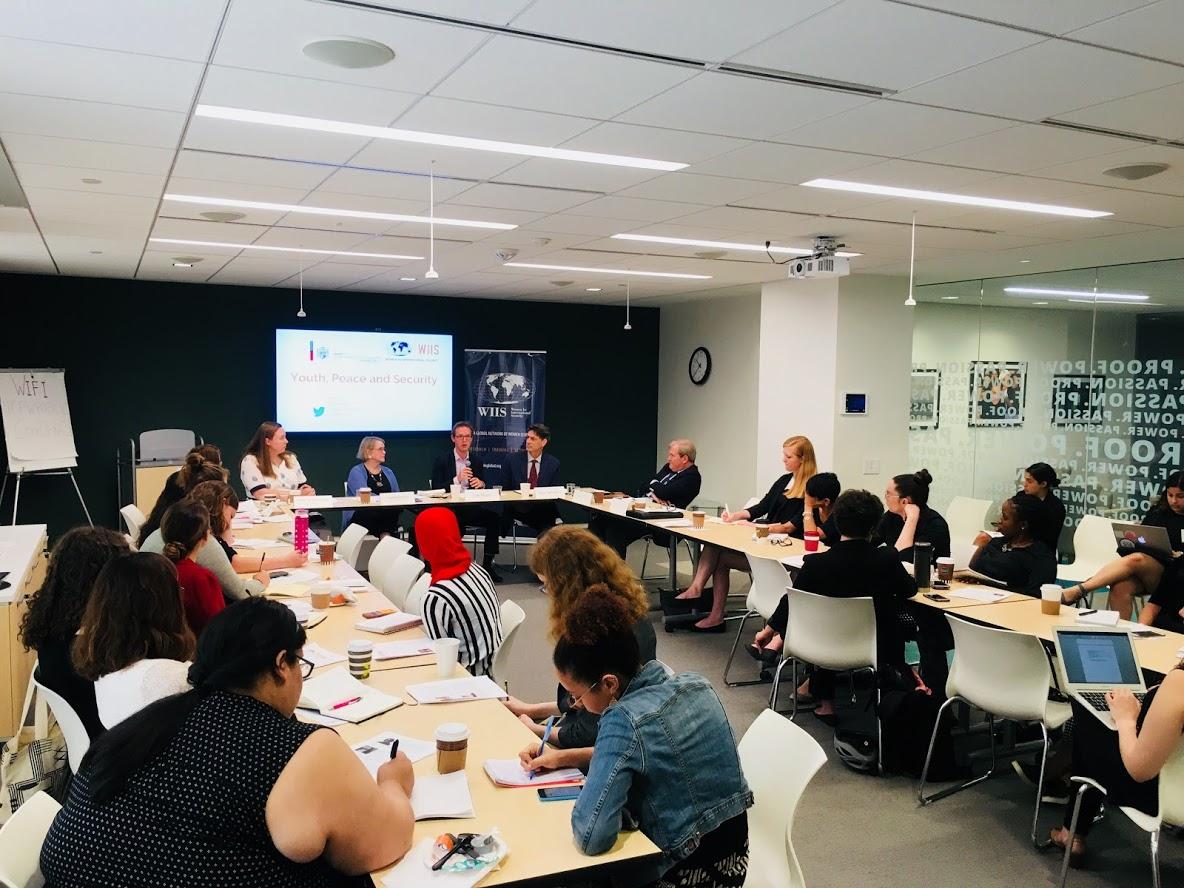The Embassy of Liechtenstein partnered with Women In International Security (WIIS) to host a roundtable discussion about “Youth, Peace and Security” on June 13th. The event occurred at the International Center for Research on Women and attracted about 60 attendees. The engaging conversation explored the significance and challenges of the UN Youth, Peace and Security agenda, particularly in regards to its assumptions about youth and gender.

The discussion was moderated by the President of WIIS, Dr. Chantal de Jonge Oudraat. Panelists included Kathleen Kuehnast, Director of Gender Policy and Strategy at the US Institute of Peace; Ursula Knudsen Latta, Research and Policy Officer with Saferworld; Tim Shand, Vice President of Advocacy and Partnerships at Promundo; and Marc Sommers, member of the UN Advisory Group of Experts for the Progress Study on Youth, Peace and Security.
Ambassador Kurt Jaeger delivered opening remarks in which he expressed gratitude for the partnership between WIIS and the Embassy of Liechtenstein. He highlighted the timeliness of this discussion in light of recent UN security resolutions that reaffirm the need for a comprehensive approach to peace building. He identified youth and civil society as key elements in fostering cultures of peace and stressed the importance of viewing security issues with a gendered perspective.
The conversation centered around the importance of including both gender dimensions and youth perspectives in considerations of peace and security. The panelists frequently highlighted intersections between the UN Youth, Peace and Security agenda and the UN Women, Peace and Security agenda.
The four panelists recognized the significance of the Youth, Peace and Security agenda in furthering peaceful progress. Ms. Kuehnast explained the important role that this agenda plays in addressing misperceptions of young people as dangerous. Mr. Shand highlighted the opportunity to utilize young people as peaceful agents of change in building equitable societies. He stated that a commitment to diversity, engaging both men and women, and working with local communities are especially important for encouraging female participation. Several panelists suggested that NGOs work with local community leaders in order to promote the inclusion of women and youth in decision-making. Ms. Knudsen Latta also advised that youth organizations should be properly educated and share best practices in solving issues. According to Mr. Sommers, the large amount of state support for the Youth, Peace and Security agenda is a positive indication that most states want to include women and youth in peace building.
Panelists also identified challenges in the UN Youth, Peace and Security agenda, such as an unclear definition of youth and implicit gender stereotypes surrounding young people. Mr. Sommers suggested that youth be considered as early as possible and that it be viewed as a stage before adulthood rather than a concrete age range. He believed that gender differences between male and female youth as well as relations between youth and the state need to be more present in the agenda. Mr. Shand also encouraged people to think about youth from a gendered perspective and to challenge ideas of harmful masculinity. Ms. Knudsen Latta similarly called for a renewed focus on the gendered aspects of youth and the creation of an inclusive framework across the two UN agendas. Ms. Kuehnast added the need to include development considerations and the challenges facing impoverished youth in the agenda.
These distinguished panelists agreed on the need to focus on gender dimensions of youth issues and the importance of actively including youth and women in decision-making. They concluded that the progress made through these UN agendas should be recognized while continuing to strengthen them for further progress. This discussion was the fourth event of the five-part Gender, Peace and Security series sponsored by the Embassy of Liechtenstein.
